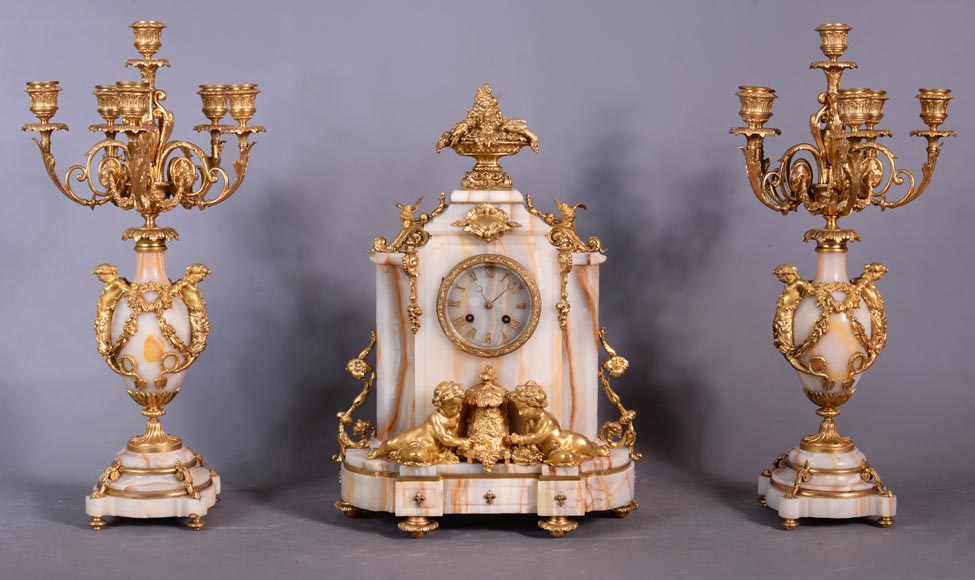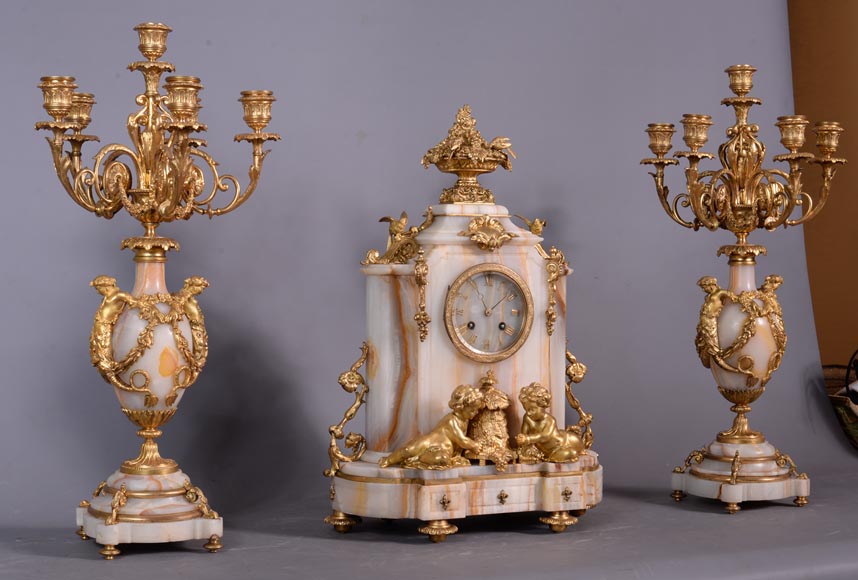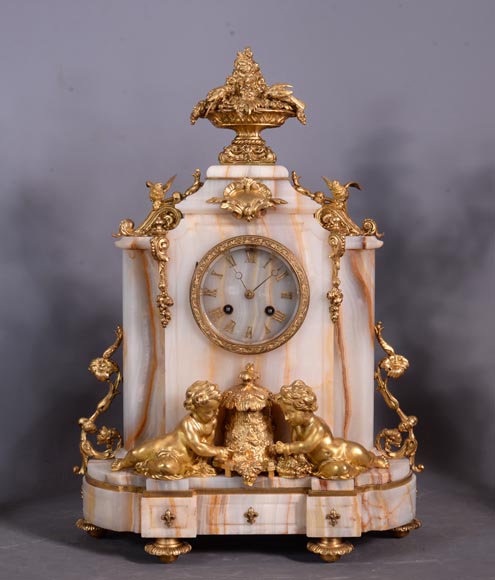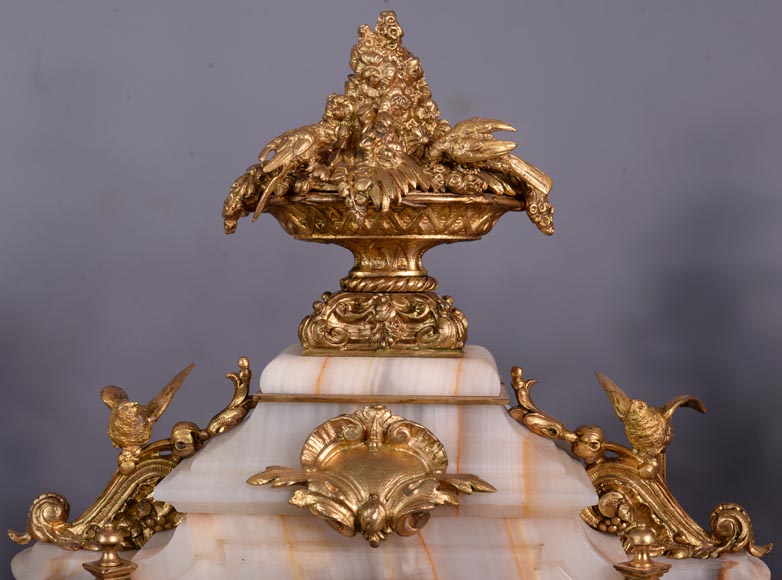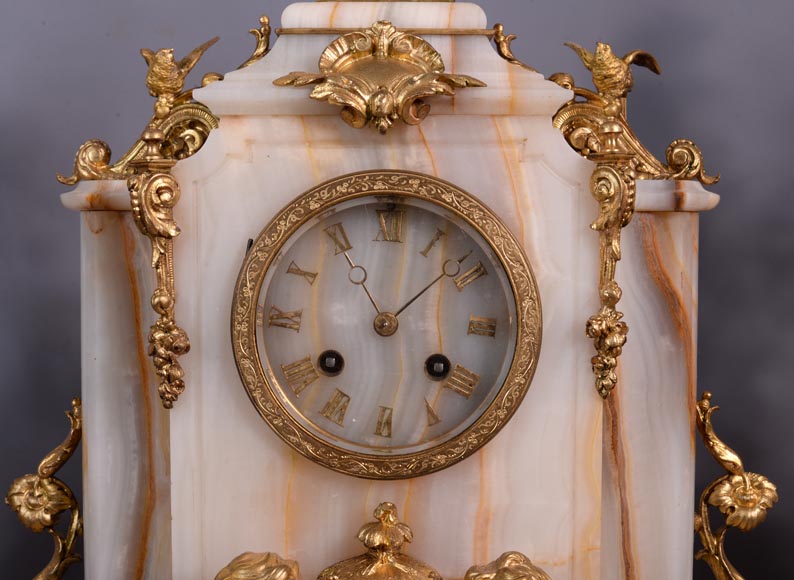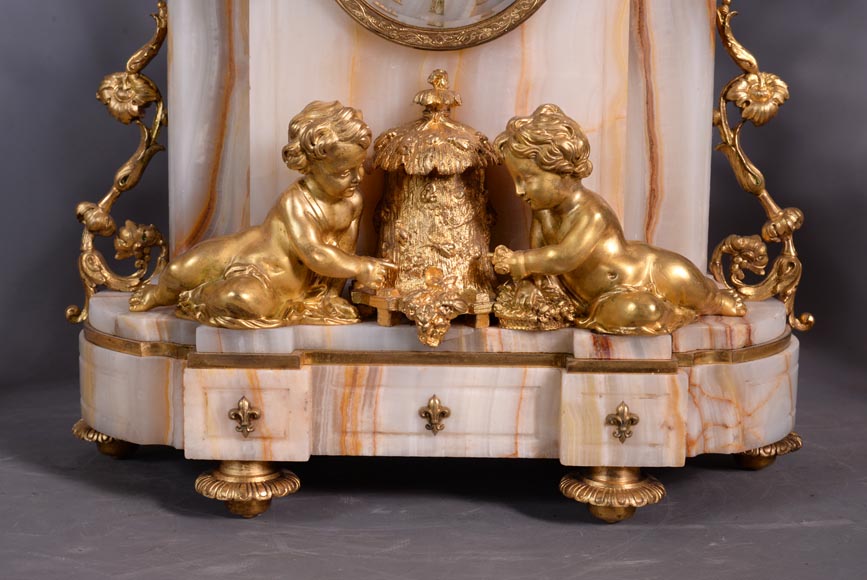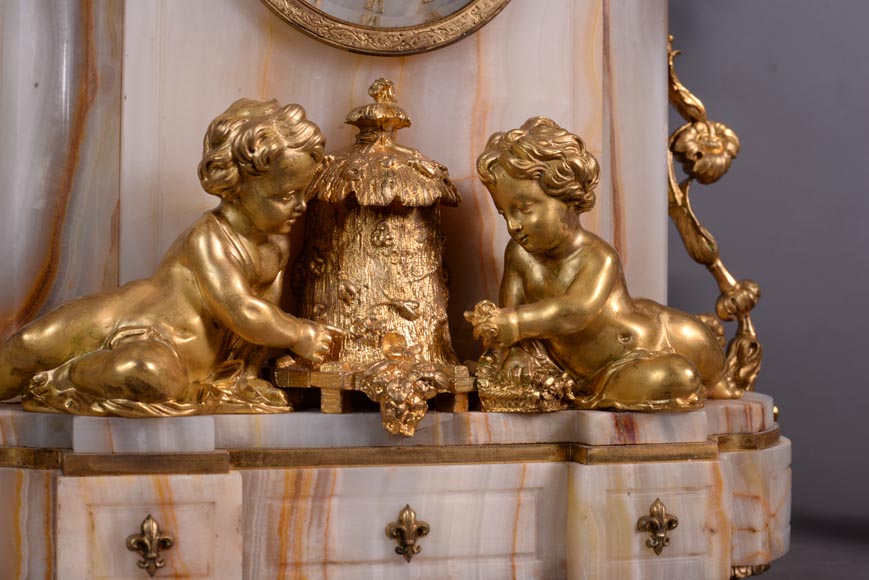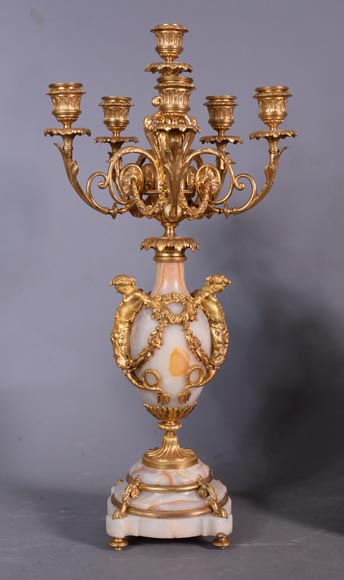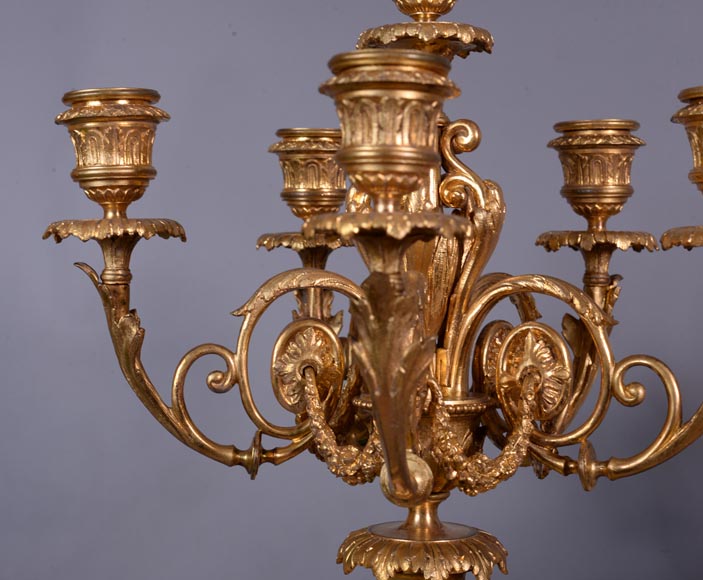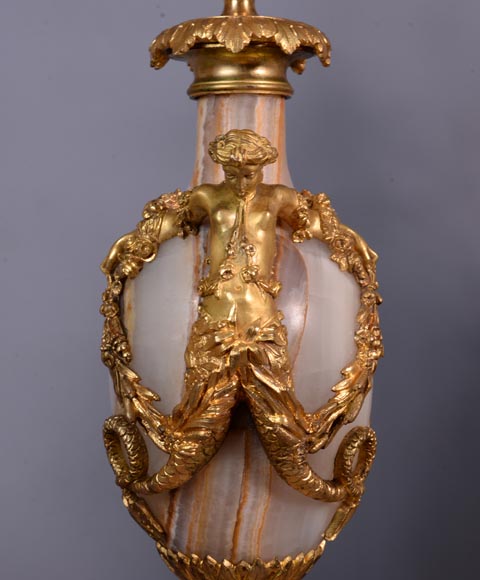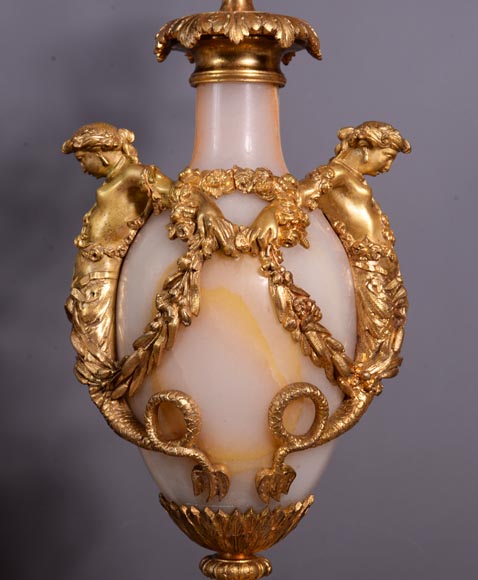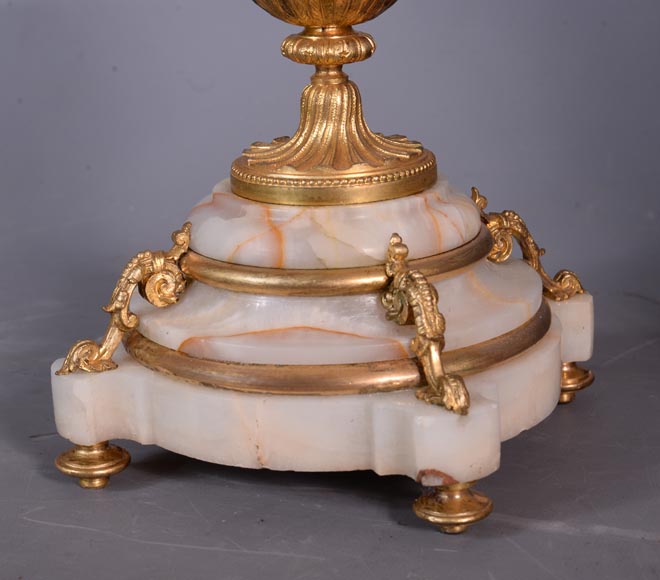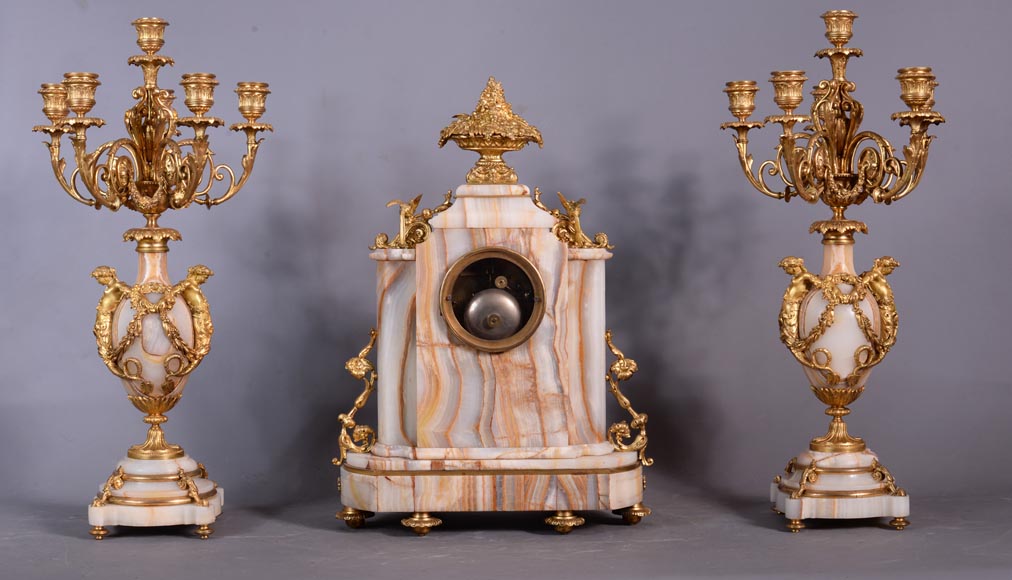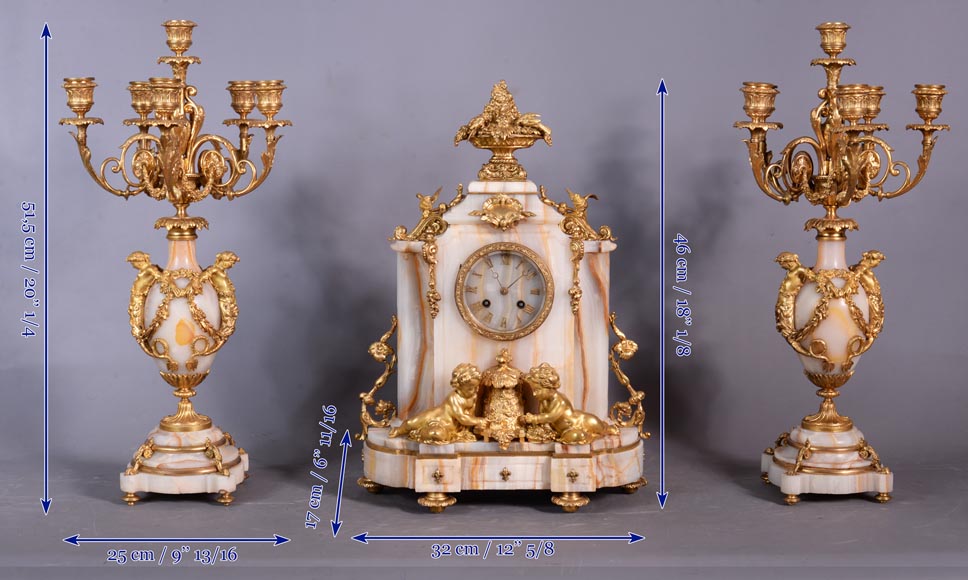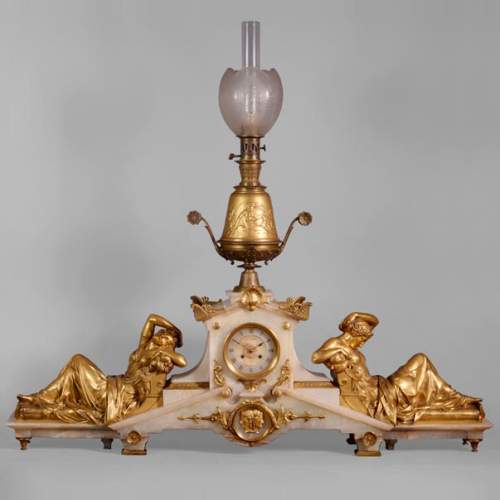Style Napoleon III / Ref.12004
Napoleon III set clock in gilt bronze and onyx, circa 1860
Dimensions
Width 12'' ⅝ 32cm
Height 18'' ⅛ 46cm
Depth: 6'' ¾ 17cm
Origin:
19th century.
This beautiful set clock made in Algeria onyx marble depicting a rich gilt bronze decoration is a work made in the 1860's. Its eclectic style is typical of the decorative art production under the reign of Napoleon III.
The central element of the set clock, the clock, depicts an onyx structure on wich are taking place numerous decorative elements, all in gilt bronze, starting with the top feet. On the base, some little chiseled fleur-de-lis brighten up the decoration while above, two putti in high-relief frame a hive from where they are picking up the honey with their hands. This triangular composition is surmounted by the clock dial, and framed with slim flowers garlands depicting a very precise chisel work. A vase full of flowers and welcoming birds crowns this delicate but rich whole. The mecanism is accessible on the back of the clock.
The candelabrum framing the clock are also made with of onyx mounted and garnished with bronze. Shaped as baluster, they also lay on top feet. On the upper part, seven light arms in gilt bronze are adorned, from the arm base to the bobech with acanthus leaves. The sirens decoration that is adorning the belly of the baluster reminds of the decorative vocalubary of the reign of Louis XIV ande the Regence, composed of flowers garlands and arabesques derived from the Renaissance grotesques.
The Algeria onyx marble is a stunning stone, looked after for its transparence wich puts it between the marble and the alabaster. We find it in different shades - white, yellow, red or green. Used during the Ancient time, we have to wait until 1849 for the quarry to be discover again in Aïn Tembalek in the Oran region. Quickly, the exploitation rights fall into the hands of the Société Alphonse Pallu & cie, they transport the raw material from Algeria to the Paris factory where the stone is then debited to make every sort of little objects or archtitectural elements. The company owns also its own bronze workshop to create the mounts.
The material wins a huge sucess during the Exposition des Produits d'Algérie in the Palais de l'Industrie in 1860, the in the International Exhibition in 1862 in London during which the Pallu company wins a silver medal.
One of the most emblematic construction site of the Algeria marble onyx rise under the Second Empire is the one in Païva hotel, where it has been largely used to create the interior decoration.
Informations
Price: on request
Recommended for you :
Dimensions:
Width: 133
Height: 119
Depth: 25
Dimensions:
Width: 31
Height: 45
Depth: 21
Dimensions:
Width: 51
Height: 42
Depth: 20
Dimensions:
Width: 25
Height: 50
Depth: 18
Dimensions:
Width: 19
Height: 16
Depth: 10
Dimensions:
Width: 27
Height: 67
Depth: 23
Dimensions:
Width: 25
Height: 46
Depth: 16
Dimensions:
Width: 67
Height: 78
Depth: 29
Dimensions:
Width: 31
Height: 45
Depth: 21
Dimensions:
Width: 28
Height: 90
Diameter: 21
Dimensions:
Width: 31
Height: 56
Depth: 26
Dimensions:
Width: 28
Height: 57
Depth: 13



